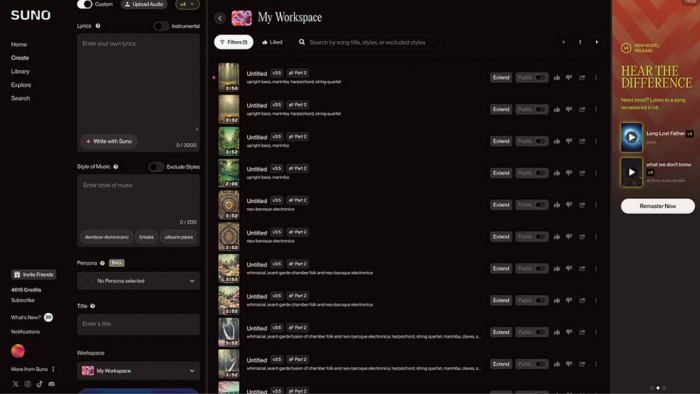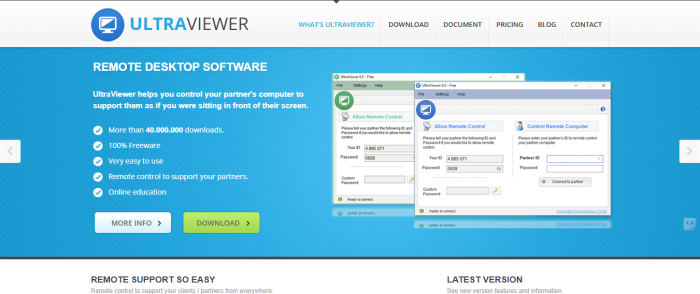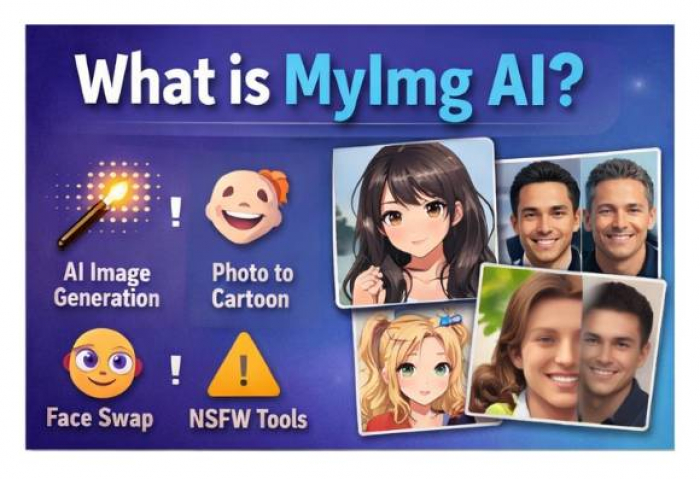Table of Content
- The Shein Explosion: How It Took Over
- Gen Z’s Favorite Habit: Scroll, Click, Wear, Repeat
- Shein Reviews: What Shoppers Are Actually Saying
- Quality Check: Polyester and Hope
- The Fit Issue: When ‘Medium’ Means Anything
- The Hidden Costs No One Talks About
- Data Privacy: When Fashion Meets Fine Print
- Sustainability: The Elephant in Every Closet
- The Ethical Side: Who’s Making the Clothes?
- Shein vs Zara vs H&M vs Boohoo: Who Wins in 2025?
- The Verdict: Should You Still Shop Shein?
- The Real Takeaway
If you’ve ever opened TikTok and found yourself 30 minutes deep in “SHEIN haul” videos, you already know, Shein is everywhere. From $5 dresses to influencer collabs and algorithm-driven trends that seem to appear overnight, Shein has become the definition of ultra-fast fashion.
But as the hype keeps building, so do the mixed feelings. In 2025, “Shein reviews” has become one of the most-searched fashion queries on Google, and not just because people want cheap outfits. They want answers.
Let’s unpack what’s really going on, from the viral highs to the behind-the-scenes controversies.
The Shein Explosion: How It Took Over
Here’s how wild Shein’s growth has been:
- $32 billion+ in revenue this year alone
- 315,000 new products launched annually, yes, annually!
- 85 million+ app downloads in 2025
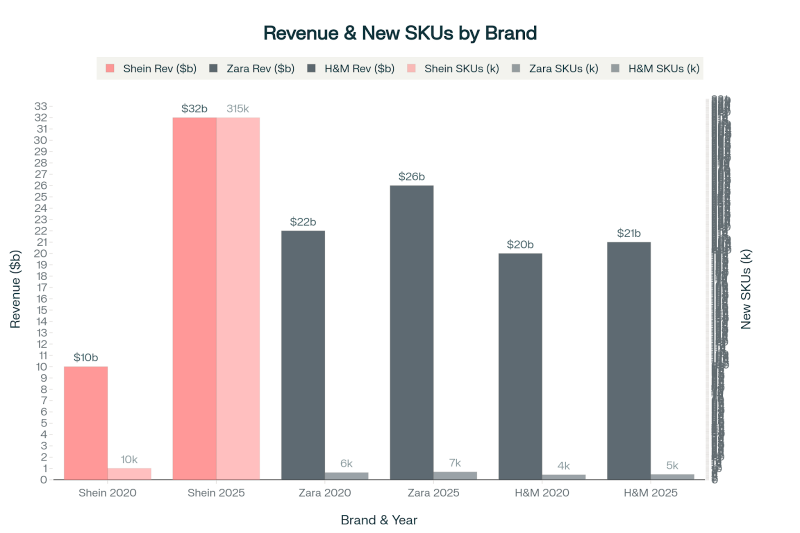
To put that in perspective, Zara lists fewer than 7,000 new products a year. Shein adds that many in a single week.
It’s no wonder every other social post seems to start with, “So, I ordered from Shein again…”
Gen Z’s Favorite Habit: Scroll, Click, Wear, Repeat
If TikTok is the stage, Shein is the costume department. The platform thrives because it speaks Gen Z’s language: quick dopamine hits, cheap thrills, and endless outfit inspiration.
One Reddit user summed it up perfectly:
“It’s like gambling but for clothes. You never know if you’ll love it or regret it.”
That’s the real Shein experience, a mix of excitement and roulette. For every perfect crop top, there’s a skirt that feels like it was cut from shower curtain material.
Shein Reviews: What Shoppers Are Actually Saying
When you dive into Shein reviews across Trustpilot, Reddit, and TikTok comments, a clear pattern emerges: people love the prices but wrestle with everything else.
The Love:
“I got 15 tops for under $100. Who cares if a few are duds?”
“Perfect for party outfits you’ll wear twice.”
“Sizing roulette. I’m an M, but apparently also a XS and sometimes a L.”
“Refund took forever and return shipping wasn’t free.”
The sentiment split looks something like this:
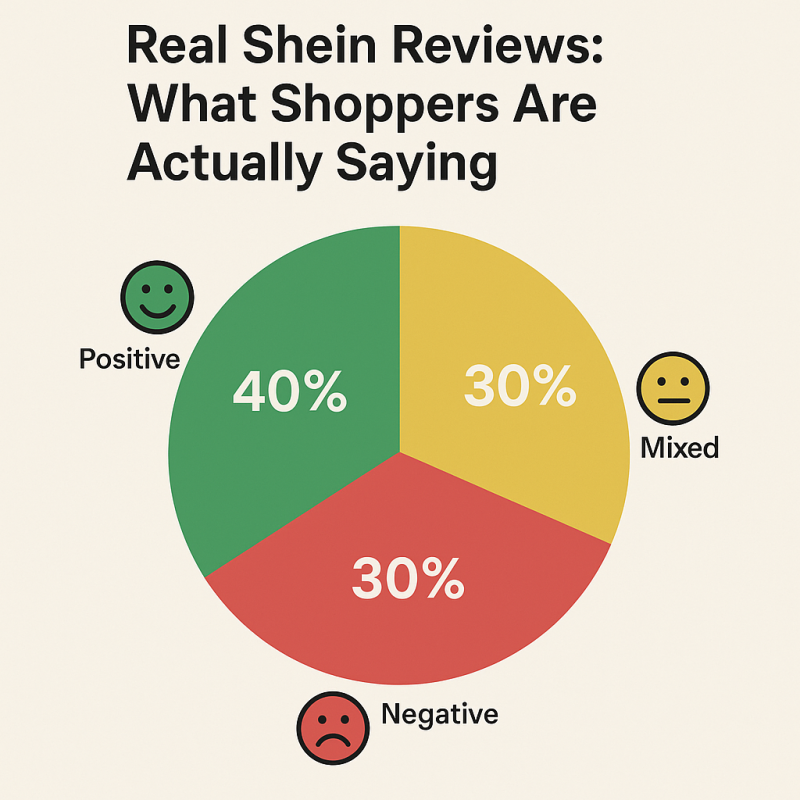
That means most shoppers aren’t angry, just realistic. They know what they’re signing up for: fast, cheap, sometimes fabulous, sometimes frustrating.
Quality Check: Polyester and Hope
Nobody buys from Shein expecting luxury. Most of its catalog is made from polyester and rayon, materials that make clothes light, colorful, and ridiculously affordable. But they also crease, cling, and wear out fast.
If you’re shopping for basics, gym sets, or accessories, you’ll probably do fine. But if you’re after “that Pinterest look,” be ready to iron, layer, and manage your expectations.
Pro tip: Stick to categories where fabric flexibility matters less, like bags, sunglasses, or knit sets.
The Fit Issue: When ‘Medium’ Means Anything
One of the most common complaints in Shein reviews is sizing. Two items from the same collection can fit completely differently. The secret? Shein works with thousands of micro-factories, meaning production methods aren’t always identical.
The best buyers do one thing differently: they scroll the review section like detectives. Customer photos tell you more than any size chart ever could.
“Check the pics. Always. That’s where the truth hides.” — Reddit user
The Hidden Costs No One Talks About
That $7 top isn’t really $7 when you factor in:
- Shipping delays (especially during sales)
- Customs duties (depending on your country)
- Return shipping costs
- Time spent waiting for refunds
Shein’s 35-day return window sounds generous, but reviews reveal that it’s more DIY than you’d think. Some buyers pay for return shipping, others get partial credits, and many just keep the items because returning isn’t worth the hassle.
It’s cheap fashion, but it can cost you in patience.
Data Privacy: When Fashion Meets Fine Print
Shein doesn’t just collect your style preferences, it collects your data. In August 2025, French regulators fined Shein €150 million for cookie and consent violations. That raised eyebrows across Europe about how much personal info fast-fashion apps really track.
If you’re a frequent Shein shopper, play it smart:
- Use a privacy browser or guest checkout
- Avoid saving payment info
- Regularly clear cookies and change passwords
Sustainability: The Elephant in Every Closet
Here’s where Shein reviews get serious. Environmental experts say fast fashion contributes up to 10% of global CO₂ emissions. That means the very trends fueling TikTok also fuel climate impact.
Shein has launched an “eco” collection and promises to recycle textiles, but those lines make up less than 1% of total sales. The truth? The company is still built for volume, not longevity.
“You can’t sell 300,000 new items a year and call it sustainable.” — Eco Fashion Research Group, 2025
The Ethical Side: Who’s Making the Clothes?
Multiple 2025 reports found Shein suppliers where employees worked 75-hour weeks with minimal pay. In response, Shein pledged to audit more factories and increase compliance budgets by $15 million.
But many watchdogs call it reactive damage control, not reform. Zara and H&M, by contrast, have public supplier lists and clearer sustainability roadmaps.
That’s the trade-off fast fashion buyers face: speed comes at someone else’s expense.
Shein vs Zara vs H&M vs Boohoo: Who Wins in 2025?
| Brand | Price | Quality | Trend Speed | Sustainability | Market Share |
| Shein | $5–$40 | ★★☆☆☆ | Ultra-Fast | Low | 40% |
| H&M | $10–$50 | ★★★☆☆ | Fast | ★★☆☆☆ | 27% |
| Zara | $30–$150 | ★★★★☆ | Fast | ★★★☆☆ | 17% |
| Boohoo | $8–$50 | ★★☆☆☆ | Fast | Low | <5% |
Shein wins the price war but loses on ethics and durability. Zara leads on quality, H&M wins on balance, and Boohoo trails behind both.
The Verdict: Should You Still Shop Shein?
Shein isn’t going anywhere. It’s addictive, accessible, and algorithmically perfect at giving people what they want right now.
If you shop smart, you can absolutely find value. But the rule is simple: buy it for fun, not forever.
Stick to trend pieces, avoid over-ordering, and read reviews like your bank balance depends on it. Because, in a way, it does.
Our Editorial Rating:
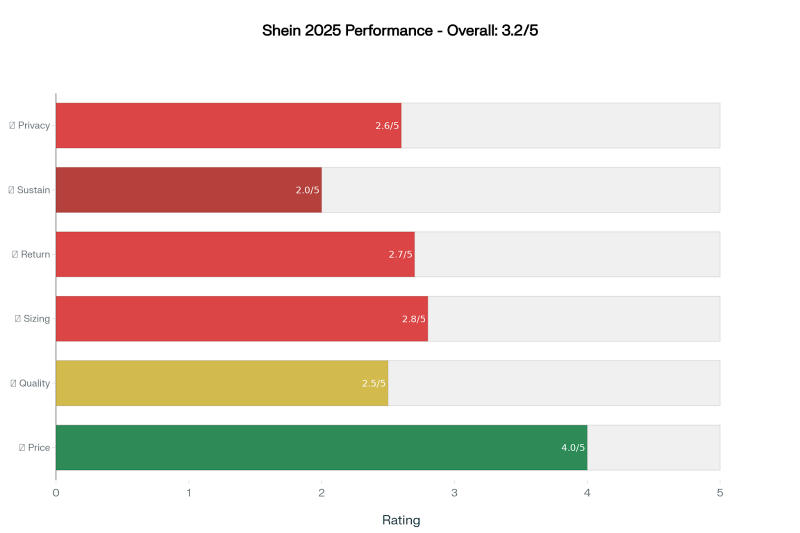
3.2 / 5 overall, fun, cheap, inconsistent, and occasionally risky.
| Category | Score |
| Price | ⭐⭐⭐⭐⭐ |
| Quality | ⭐⭐ |
| Sizing | ⭐⭐½ |
| Return Process | ⭐⭐ |
| Sustainability | ⭐ |
| Data Privacy | ⭐⭐½ |
The Real Takeaway
Shein’s story isn’t just about fashion; it’s about our generation’s buying habits. We want everything fast: news, entertainment, outfits. But with speed comes consequence, from carbon footprints to refund frustration.
So next time you’re scrolling Shein at 2 a.m., remember: behind every $9 crop top is a complex chain of design, data, and labor.
You can still wear what you love. Just wear it consciously.
Post Comment
Be the first to post comment!
